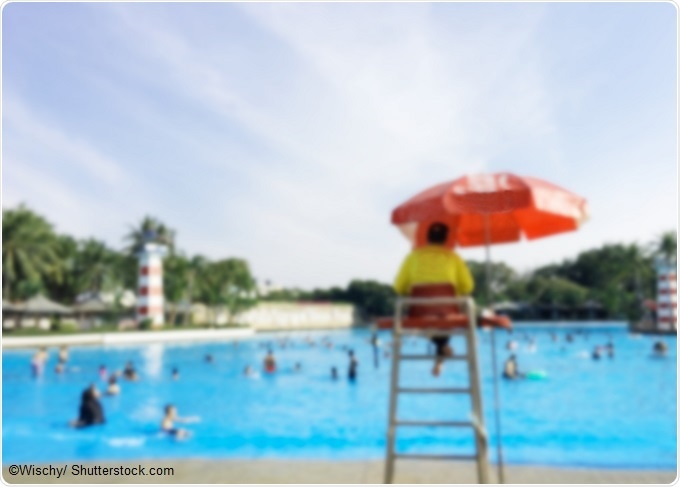May 19 2017
According to preliminary data published today in the Morbidity and Mortality Weekly Report of Centers for Disease Control and Prevention (CDC), the outbreak of parasitic infection related to swimming pools and water playgrounds was doubled in 2016 compared with 2014.

In the United States, the year 2016 has witnessed at least 32 outbreaks compared with 16 outbreaks in the year 2014, caused by the parasite Cryptosporidium (or Crypto) connected to swimming pools or water playgrounds. Comparatively, 13 crypto outbreaks in the year 2013, 16 in 2012, and 20 in 2011 connected to swimming were reported. Although, it is unclear whether the outbreak number has risen or whether better examination and laboratory methods has led to detecting the outbreak better.
Crypto, the most common cause of diarrheal illness is spread when people consume something that has been contaminated with the feces from infected humans or animals, such as pool water infected with diarrhea. It is not easily killed by chlorine and its ability to survive up to 10 days in properly treated water makes the outbreaks connected to swimming pools or water playgrounds.
“To help protect your family and friends from Crypto and other diarrhea-causing germs, do not swim or let your kids swim if sick with diarrhea,” said Michele Hlavsa, R.N., M.P.H., chief of CDC’s Healthy Swimming Program. “Protect yourself from getting sick by not swallowing the water in which you swim.”
Preventing the spread of the parasite in pools and other recreational water bodies
Most germs can be killed within a few minutes when standard levels of chlorine and other pool disinfectants are used, however, killing Crypto with standard level of pool disinfectants is extremely difficult. CDC has recommended to close pools and treat water with high levels of chlorine—hyperchlorination, while responding to an incidence of diarrhea in the water or at the onset of an outbreak of Crypto.
The following steps are the best way to protect others and ourselves from germs causing diarrhea:
- Do not swim or allow your kids to swim if sick with diarrhea
- If the cause for the diarrhea is Crypto, wait until 2 weeks after diarrhea has stopped to begin swimming again.
- Do not drink the water in which you swim.
- Wash in the shower before getting in the water to get rid of any germs on your body that could contaminate the water.
- Take children on bathroom breaks regularly, and check diapers in a diaper-changing area and not right next to the swimming pool.
Examples of large outburst Crypto in the United States
Alabama, Arizona, Ohio, and other states examined and controlled outbreak of Crypto connected to swimming pools or water playgrounds in the year 2016. These outbreaks emphasized the continuing challenges that treated recreational water venues have with Crypto, owing to the difficulty in killing the germs and the small number of germs that can make people sick.
Arizona has reported 352 people with Crypto incidents for July–October 2016 compared with a maximum of 62 cases for any one year in 2011–2015. Ohio identified 1,940 Crypto incidents in 2016 while comparing with no more than 571 cases for any one year in 2012–2015.
Tracking cryptosporidiosis using CryptoNet
Launched in 2010, CryptoNet is the first U.S. DNA fingerprinting-based tracking system for illness caused by a parasite that helps states in detecting the type of Crypto that infects people and for controlling outbreaks. For example, in the year 2016 Arizona used CryptoNet to confirm spread of a particular type of Crypto in multiple swimming pools in the Phoenix area.
CDC is working to improve CryptoNet with more advanced DNA fingerprinting techniques. Probing the results and combing with information on what patients were doing before they became sick will help CDC and its public health partners develop more effective strategies to stop spreading of Crypto.